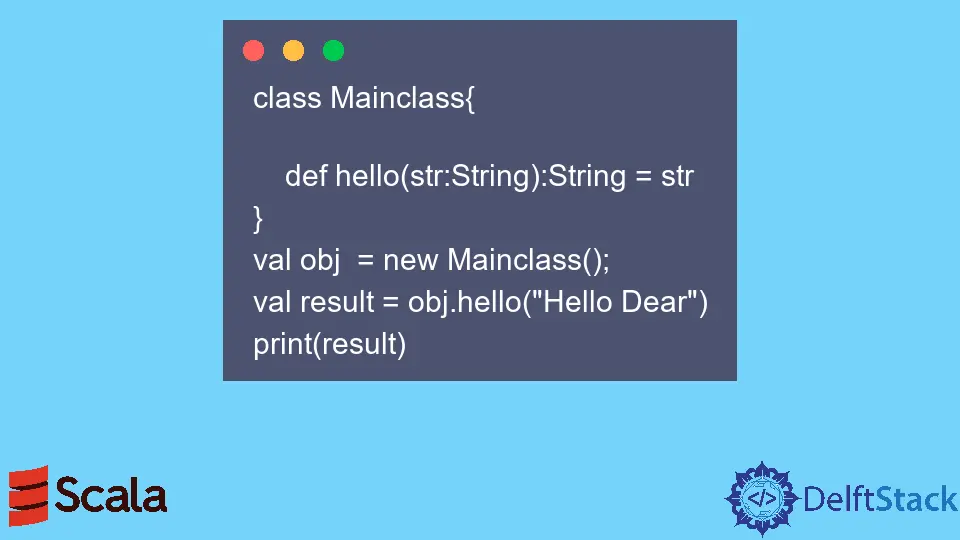Difference Between Object and Class in Scala
- Understanding Classes in Scala
- Understanding Objects in Scala
- Key Differences Between Object and Class
- When to Use Classes and Objects
- Conclusion
- FAQ

Scala is a powerful programming language that combines object-oriented and functional programming paradigms. Understanding the difference between an object and a class in Scala is crucial for any developer who wants to harness the full potential of this language. In simple terms, a class is a blueprint for creating objects, while an object is a specific instance of a class.
This article will delve into the nuances of both concepts, highlighting their differences, use cases, and how they interact within the Scala ecosystem.
Understanding Classes in Scala
A class in Scala serves as a blueprint for creating objects. It encapsulates data and behavior, allowing developers to define properties (attributes) and methods (functions) that operate on those properties. When you create a class, you’re essentially defining a new type. For instance, if you have a class called Car, you might define properties like color and model, and methods like drive and stop.
Here’s a simple example of a class in Scala:
class Car(val color: String, val model: String) {
def drive(): String = s"The $color $model is driving."
}
In this code, we define a class Car with a constructor that takes color and model as parameters. The method drive returns a string indicating that the car is driving.
Output:
The red Toyota is driving.
Classes in Scala can be instantiated multiple times, allowing you to create multiple objects with different property values. Each object created from a class is independent of others, which means changes to one object do not affect the others.
Understanding Objects in Scala
In Scala, an object is a singleton instance of a class. Unlike classes, which can have multiple instances, an object is a unique instance that is created once and only once. This makes objects particularly useful for utility functions and constants, where you don’t need multiple instances.
Here’s how you can define an object in Scala:
object CarUtils {
def printCarDetails(car: Car): Unit = {
println(s"Car Model: ${car.model}, Color: ${car.color}")
}
}
In this example, we define an object CarUtils that contains a method printCarDetails. This method takes a Car object as a parameter and prints its details.
Output:
Car Model: Toyota, Color: Red
Objects in Scala can also extend classes and traits, allowing you to create reusable code. They are often used for companion objects, which share the same name as a class and can access its private members. This feature enhances encapsulation and modularity in your code.
Key Differences Between Object and Class
Now that we have a basic understanding of what classes and objects are in Scala, let’s explore their key differences:
- Instancing: A class can have multiple instances, while an object is a single instance.
- Declaration: Classes are defined using the
classkeyword, while objects are defined using theobjectkeyword. - Memory Usage: Since an object is a singleton, it consumes less memory compared to multiple instances of a class.
- Companion Objects: An object can serve as a companion to a class, enabling it to access private members of the class.
These differences are crucial when deciding which to use in your Scala applications. Classes are often used for modeling real-world entities, while objects are great for utility functions and constants.
When to Use Classes and Objects
The decision to use a class or an object often depends on the specific requirements of your application. If you need multiple instances of a type with shared behavior, a class is the way to go. For example, if you are building a car dealership application, you would create a Car class to represent each car.
On the other hand, if you only need a single instance, such as a configuration object or a utility function, an object is more appropriate. For instance, if you have a method that calculates the total price of a car including tax, you might create an object to encapsulate that logic.
Here’s a practical example:
object TaxCalculator {
def calculateTax(price: Double, taxRate: Double): Double = price * taxRate
}
Output:
The tax on a car priced at $20,000 with a tax rate of 0.08 is $1600.0
In this example, TaxCalculator is an object that provides a method for calculating tax. Since tax calculation does not require multiple instances, using an object is more efficient.
Conclusion
In summary, understanding the difference between objects and classes in Scala is essential for effective programming. Classes serve as blueprints for creating multiple instances, while objects represent unique instances that can encapsulate behavior and state. By knowing when to use each, you can write more efficient and modular code. Whether you’re building a simple application or a complex system, leveraging the strengths of both classes and objects will help you become a more proficient Scala developer.
FAQ
-
What is a class in Scala?
A class in Scala is a blueprint for creating objects, encapsulating data and behavior. -
What is an object in Scala?
An object in Scala is a singleton instance of a class, created once and only once. -
Can a class have multiple instances in Scala?
Yes, a class can have multiple instances, each with its own state. -
What is a companion object in Scala?
A companion object is an object that shares the same name as a class and can access its private members. -
When should I use a class over an object in Scala?
Use a class when you need multiple instances; use an object when a single instance suffices.